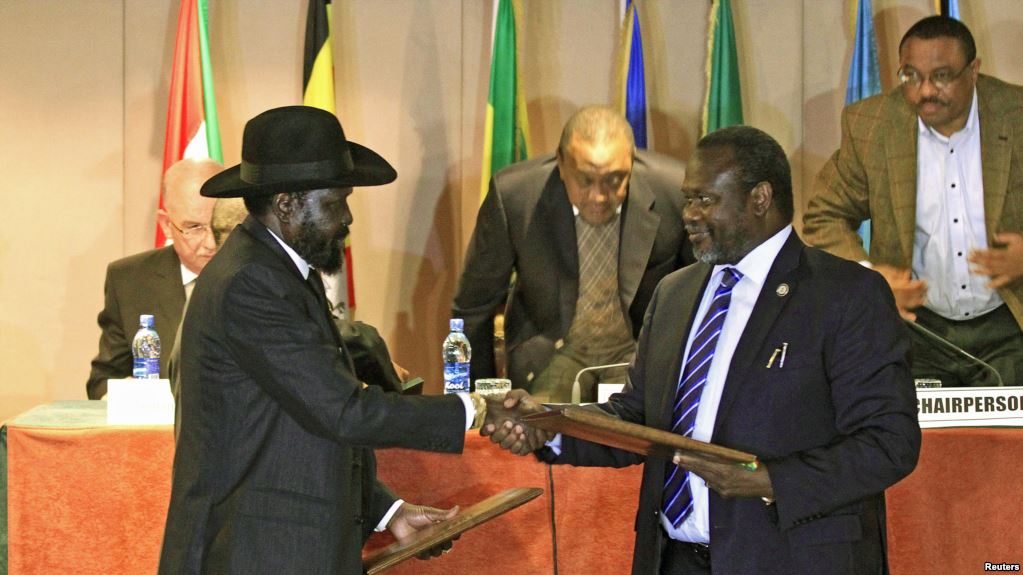South Sudan warring parties urged to reach peace deal

East African bloc IGAD’s council chairman warns warring parties this could be their ‘very last chance’ to make peace

The eight-nation East African bloc — Intergovernmental Authority on Development (IGAD) — has said the warring parties in South Sudan have one “very last chance” to hammer out a peace deal.
“This is your very last chance,” IGAD Council of Ministers Chairman Workineh Gebeyehu told the warring parties and stakeholders who began a 10-day meeting in capital Addis Ababa Monday.
The meeting dubbed “Second Phase of High-Level Revitalization Forum” comes after the December 2017 moot during which the warring parties had signed a cessation of hostilities agreement; that deal was broken within 24 hours of its enforcement.
The second-phase, according to IGAD, sets out to restore a permanent cease-fire, implement the 2015 peace agreement fully, develop a revised and realistic timeline, and an implementation schedule towards a democratic election at the end of the transition period.
Gebeyehu, who is also Ethiopia’s foreign minister, said after the cessation of hostilities agreement was signed last December there had been reports of violations.
“It is critical time to revisit the range of political measures to take on violators and spoilers of the cessation of hostilities agreement,” he said.
African Union Commission Chairperson Moussa Faki Mahamat said: “I hope you have come to this forum imbued with responsibility, which has been tragically missing.”
Indicating the futility of “military victory” under the circumstances being witnessed in South Sudan, Mahamat said: “What has been missing so far is a strong political will to make the necessary compromises.
“The commitment that had been made has never been honored. Hardly the ink [on the cessation of hostilities agreement] had dried that clashes erupted in numerous parts of the country.”
South Sudan has been mired in conflict between the government of South Sudanese President Salva Kiir and rebels led by ex-Vice President Riek Machar since December 2013.
A shaky peace deal signed in August 2015 between the rival leaders under UN threats of sanctions, arms embargoes and asset freezes led to the formation of a coalition government in April 2016, but this was shattered by renewed fighting which erupted in July in 2016.
The conflict has killed tens of thousands and displaced almost four million people from th
